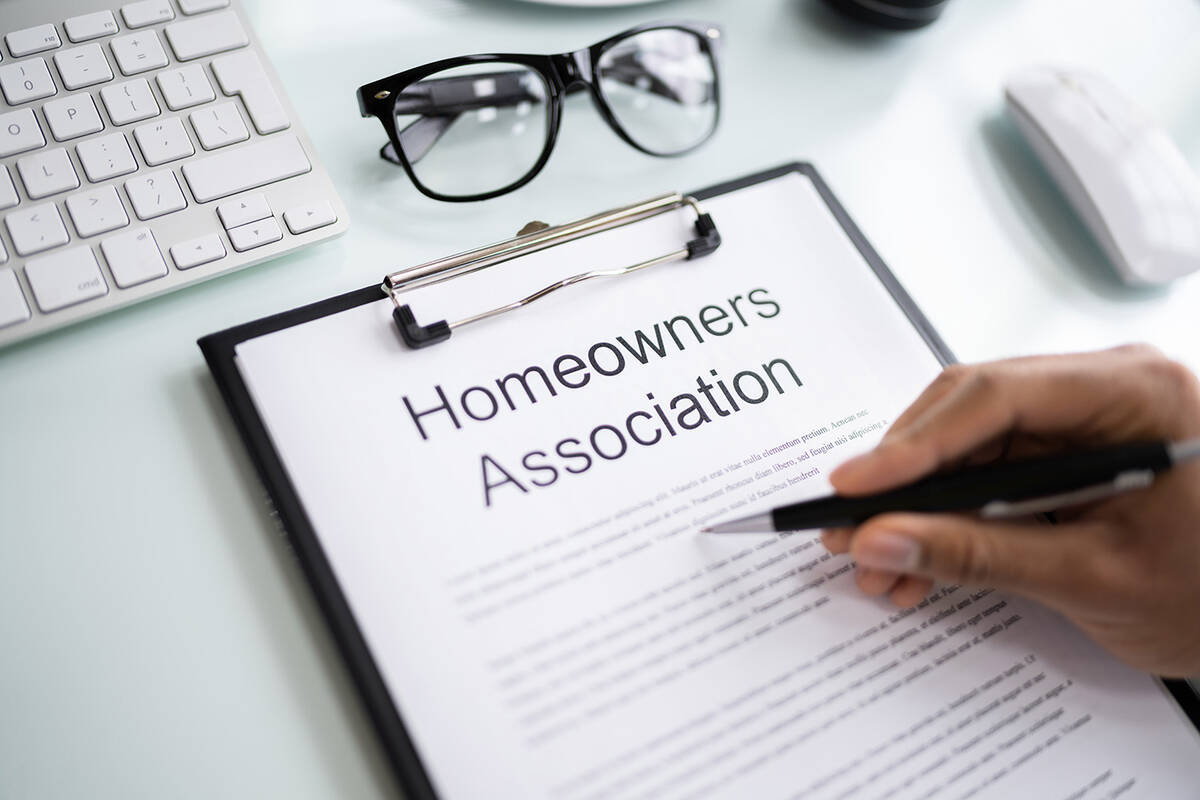HOA rules beat google search on assessments
Q: Have learned a lot from you. My question: Our covenants, conditions and restrictions drafted Jan. 27, 1993 under Article III, Section 3.3 (a) “The maximum assessment may be increased each year by the board not more than 15 percent.
However, if I Google homeowners association increase, as of June, 25, 2021, increase must be based on the Consumer Price Index, but not 3 percent, each year.
Am I falling down the internet rabbit hole?
A: Your governing documents take precedence over HOA Google.
Q: I appreciate your weekly column regarding HOA concerns and seek your guidance/recommendations on the following:
Other than a costly and divisive recall effort for the removal of a former and current executive board member, are there other action(s) that an association can employ for the removal of a board member? The board member, as president, blatantly and willingly circumvented Nevada Revised Statutes 116.31086 and association governing documents to the advantage of a preferred contractor. Numerous other violations (six) occurred during performance as an executive board member.
I realize the NRS and association governing documents require a recall for the removal of an executive board member.
A: Sorry but no. You would need to follow the recall procedures as set in NRS. Only through a recall election or by order of the Nevada Real Estate Commission can a board member be removed.
The only other option is to vote the board member off the board when his or her term is over.
Q: Please direct me to any academic studies performed that objectively weigh the pros and cons of rental restrictions for an HOA community.
Our Clark County association is considering lifting its rental restrictions and I’d like to review academic, professional studies that research this issue, rather than resort to anecdotal story-telling. Thank you for any help you can provide.
A: Sorry but the only readings I have seen pertain to court cases.
You may want to reach out to the National Association of Realtors, the national Institute of Management and the national Community Association Institute. These organizations do have research departments and could possibly have studies on this topic.
Q: Thank you for all your help both via email and in the Las Vegas Review-Journal forum. Every advice you give is so appreciated and helps, I’m sure, a lot of folks like me seeking answers. I have a few questions to ask of you:
■ Do special assessments need a membership vote? This year we will probably spend much more than what was budgeted (including the allocation from our reserves for renovation) and that is because we were not anticipating increasing costs and gross underbidding by the previous landscaper. Are we permitted to levy a special assessment with the 2023 budget?
■ A couple of homeowners have constantly bullied the board by sending us legal threats the entire year and, of course, it was all turned over to legal counsel resulting in increased legal fees, way more than budgeted. The question again is are we allowed to recover some or all it by way of special assessment. In what circumstances can an association levy special assessment against a specific homeowner to recover legal fees?
■ We are a 175-unit sub-association with five board members and are contemplating reducing the size of the board to three. Our attorney is working on it. Should the voting be by secret ballot? If not, why not? Can the board request secret ballot voting?
■ Can the board file a bullying/harassment complaint against a homeowner, or are the board members considered quasi public figures (anti SLAPP)?
A: As to the first question, yes. In preparing the 2023 operating and capital budgets, the association needs to review its 2022 expenses to determine what adjustments will need to be made. Associations can expect increases, especially with services. The cost of gasoline has increased contractors’ fees as well as adjusting for the increase in the cost of living. In addition, your association should do a thorough review of your common areas to determine if work will be needed in 2023. Look over your reserve study for assistance in identifying those projected expenses.
As to the second topic, in very rare cases would you have a legal special assessment, such as the reimbursement on high deductibles caused by casualty damages or through other lawsuits.
The fact that you have paid substantial money toward legal fees to address those residents does not usually call for a legal assessment. You will just have to adjust your projected legal fees for 2023 budget.
To address the question about the size of your HOA board, in this case, approving the reduction of directors per either your CC&Rs or your bylaws, you would need an open ballot in order to count the yes versus the no votes. If someone later challenges the voting, you would have specific documentation of the votes by resident.
About the bullying issue, yes, your association would use the same violation procedures as stated in your rules and regulations. Under NRS 116.31184, homeowners can be cited for threats, harassment.
Barbara Holland is an author and educator on real estate management. Questions may be sent to holland744o@gmail.com.












